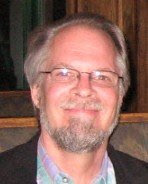One of the most underreported dimensions of the life and work of Walter Cronkite is his long and dedicated involvement with the Interfaith Alliance. For some strange reason, this doesn't seem to be headline news.
The Interfaith Alliance was founded in 1994 with a mission to promote the positive role of religion as a healing and constructive force in public life. That was, and still is, a challenging goal. At the time of the founding of the Interfaith Alliance, America seemed to be increasingly mired in a one-dimensional view of religion. The one kind of religion that was constantly asserted in the public eye was the conservative Christianity of mostly white, evangelical and fundamentalist Christians.
The message of this movement, called the religious right, was that religion is about rigid moral rules, conservative politics, individual responsibility (which usually meant voting "no" on social programs) and a strangely unChristlike affirmation of American militarism. The religious right was cultivating a growing alliance with conservative politicians that would reach its zenith during the Bush years. Some of those politicians openly called for America to be a "Christian nation," a form of government known as theocracy.
The Interfaith Alliance was formed to provide an alternative to this flawed model of the role of religion in public life. Interfaith Alliance sought to remind the American people that America is diverse, mulitcolored and multiethnic, not monochrome and always crowding the right side of the political spectrum. The new organization wanted to promote tolerance, religious freedom, civility and respect in religious dialogue, and clear boundaries between church and state. It wanted to correct the mistaken idea that any political party represented God. It wanted America to remember that thoughtful and caring people can disagree on religion, politics and social policies, whether they are people of faith or not.
Beginning in 1997, Walter Cronkite became one of the most active and dedicated supporters of the Interfaith Alliance and remained so for the rest of his life. The group awards a prize each year in his name, and at the time of his death, he served as honorary chair of the board. Upon the occasion of Cronkite's first meeting with executive director Rev. Welton Gaddy, the most trusted person in America stated, "Nothing less is at stake in the work of the Interfaith Alliance than the existence of democracy as we know it."
In the last twelve years, the religious landscape has changed in America. The religious right no longer has the sole claim to be the voice of religion. There are many voices being heard in America, among them voices of Muslims, Jews, Native Americans, Hindus, Buddhists, humanists, pagans and many varieties of Christians. Walter Cronkite's dedication to opening up our American consciousness to the diverse voices already present among us is a major reason for the increased richness of our contemporary view. It is now our task to continue this work so that Americans of all faiths, and those of no faith, can live together peacefully, safely and in full freedom.
Subscribe to:
Post Comments (Atom)




Three cheers for My No Hell Space and the Interfaith Alliance. I've taken the liberty of adding you to my blogroll at Witches Brew. Sophie at
ReplyDeletehttp://witchesbrew.blogpeoria.com/
Sophie Gail,
ReplyDeleteThanks for the cheers. We all need some cheers. And I do mean all.